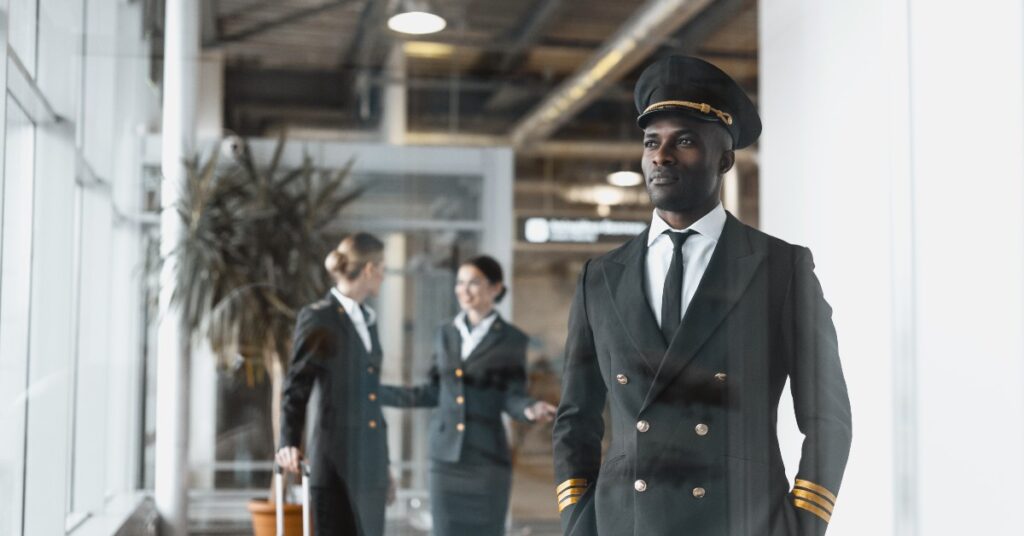Becoming a commercial pilot in Kenya is a dream many aspiring aviators hold dear. To fulfill this ambition, one must obtain a Commercial Pilot License (CPL), which grants the legal authority to operate an aircraft for hire or compensation. This license is issued by the Kenya Civil Aviation Authority (KCAA), and it comes with a strict set of requirements to ensure that pilots are fully prepared for the responsibilities involved in commercial flying.
Below is a detailed guide on what you need to secure a Commercial Pilot License in Kenya.
Requirements for a Commercial Pilot License in Kenya
- Minimum Age Requirement
- To be eligible for a CPL in Kenya, an applicant must be at least 18 years of age. This is the basic threshold to begin the process of obtaining the license.
- Medical Fitness
- The applicant must possess a Class 1 Medical Certificate. This certification proves that the applicant is in optimal physical and mental condition to operate an aircraft. The examination is comprehensive, covering vision, hearing, and overall health, and it must be conducted by a KCAA-approved aviation medical examiner.
- Private Pilot License (PPL) or Equivalent
- Before applying for a CPL, one must have a Kenyan Private Pilot License (PPL). Alternatively, military pilots or those with foreign pilot licenses may also qualify, provided they meet the specific requirements for license conversion under the KCAA regulations.
- Instructor Endorsement
- Aspiring commercial pilots must receive a logbook endorsement from a certified flight instructor. The instructor must:
- Conduct the necessary training on aeronautical knowledge areas that apply to the specific aircraft category or class rating sought.
- Certify that the individual is prepared to sit for the knowledge test relevant to their chosen aircraft category.
- Aspiring commercial pilots must receive a logbook endorsement from a certified flight instructor. The instructor must:
- Knowledge Test
- After receiving an instructor’s endorsement, the applicant must pass a knowledge test that assesses their understanding of relevant aeronautical knowledge areas. The test is a crucial step in confirming that the pilot is prepared for the theoretical aspects of commercial flying.
- Aeronautical Experience
- Candidates are required to meet specific aeronautical experience criteria before applying for the practical test. This includes logging a certain number of flight hours in various conditions, such as cross-country flying and night flying, depending on the category and class rating sought.
- Practical Training and Instructor Endorsement
- In addition to the knowledge test, the candidate must receive practical training from an authorized instructor who:
- Conducts the necessary operational training on areas that apply to the aircraft category and class rating.
- Certifies the candidate’s readiness for the practical test by endorsing their logbook.
- In addition to the knowledge test, the candidate must receive practical training from an authorized instructor who:
- Practical Test (General Flying Test – GFT)
- The practical component involves passing a General Flying Test (GFT). This test evaluates the pilot’s ability to safely and proficiently operate an aircraft. It focuses on various flight maneuvers, emergency procedures, and other areas crucial to commercial flying.
- English Language Proficiency
- All pilots must pass an English language proficiency exam, as English is the international language of aviation. The levels of proficiency are categorized as:
- Operational Level 4 (valid for 3 years)
- Extended Level 5 (valid for 6 years)
- Expert Level 6 (valid for life)
- All pilots must pass an English language proficiency exam, as English is the international language of aviation. The levels of proficiency are categorized as:
Application Requirements for a Commercial Pilot License
To apply for the CPL, candidates must prepare and submit the following documents:
- Completed CPL Application Forms: Available on the KCAA’s website.
- Valid Class 1 Medical Certificate: Proof of medical fitness.
- 4 Passport-Sized Photographs: Full face, 2 cm by 2.5 cm in size.
- Identification Document: Either a valid ID card, passport, or birth certificate, along with a copy of the same.
- Certified Logbook Pages: Copies of the last two pages of the personal logbook, certified by a supervising pilot, showing the most recent flight experience.
- Payment of Fees: A non-refundable application fee of Kshs 4,500 must be paid to the KCAA.
Kenya Civil Aviation Authority (KCAA) Contact Information
For further inquiries or assistance with the CPL application process, you can contact the KCAA using the details below:
- Location: Aviation House, Jomo Kenyatta International Airport, Nairobi
- Phone: 020 682 7470 / 0728 606 570
Conclusion
Obtaining a Commercial Pilot License in Kenya is a rigorous yet rewarding process that opens the door to a career in the aviation industry. Meeting all the outlined requirements ensures that pilots are well-trained and ready to operate aircraft in a professional and safe manner. Whether you’re starting with a Private Pilot License or converting a foreign license, the Kenya Civil Aviation Authority offers clear guidelines to help you achieve your commercial flying goals.





